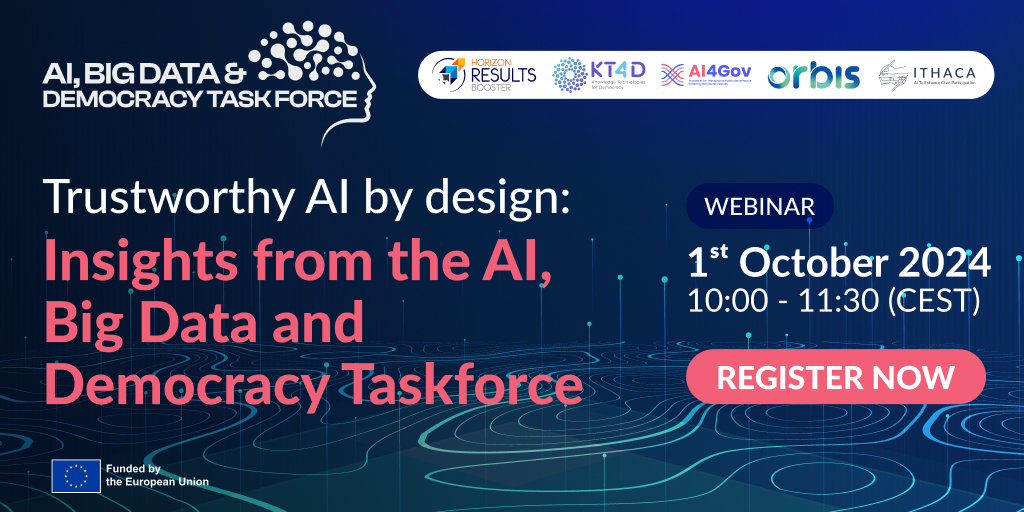In the name of the AI, Big Data, and Democracy Taskforce, we would like to invite you to a webinar on 1. October 2024 at 10.00 am. Join us and get yourself familiar with the key findings of the research on artificial intelligence, big data, democracy, and civic participation.

Register here:
https://eu01web.zoom.us/webinar/register/WN_Gjp4oO5sRiqFCAXHEVg8pQ
Purpose & Scope
The Trustworthy AI by design webinar will present research from the AI, Big Data, and Democracy Taskforce. It is a collective initiative comprising four EU-funded projects: AI4Gov, KT4D, ITHACA, and ORBIS.
These projects work in synergy to support the European Commission’s vision of fostering inclusive, innovative, and reflective societies. All of them focus on the intersection of artificial intelligence, big data, democracy, and civic participation. Thus, they are able to offer diverse approaches and academic insights aimed at safeguarding democracy and civic participation against the challenges posed by AI and big data.
The presentations will showcase their collaborative efforts to equip policymakers and citizens with advanced tools for evidence-based decision-making. Moreover, they will include also the latest advancements in information technologies. Lastly, the focus will be laid upon addressing the needs of vulnerable groups and cultural contexts.
Why to attend?
The Trustworthy AI by Design webinar offers key insights into how AI and big data can be aligned with democratic values. Through the collaboration of four EU-funded projects—AI4Gov, KT4D, ITHACA, and ORBIS—attendees will learn how these initiatives support evidence-based decision-making, safeguard civic participation, and address the needs of vulnerable groups.
This event is essential for anyone interested in the future of AI governance in Europe, offering practical tools and innovative approaches to ensure AI is transparent, ethical, and resilient.
Agenda

Funded by the European Union. Views and opinions expressed are however those of the author(s) only and do not necessarily reflect those of the European Union or the Europe Research Executive Agency. Neither the European Union nor the granting authority can be held responsible for them.